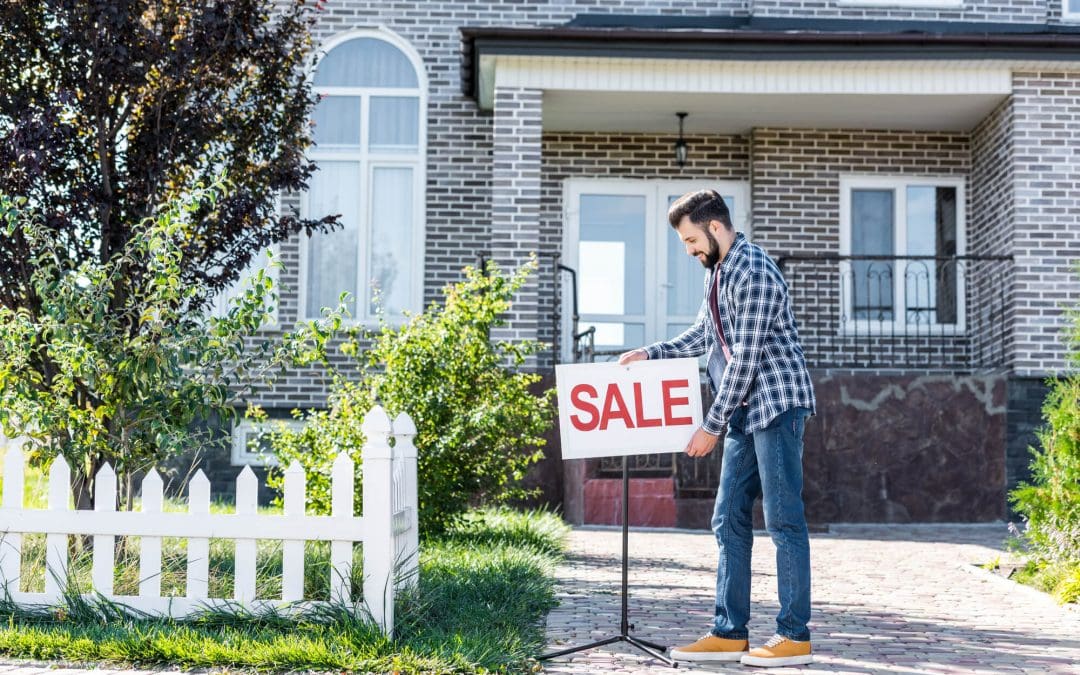When selling a home, you want to present a property that looks cared for, functions correctly, and gives buyers confidence. Making the right repairs before selling your home can help your home sell faster, reduce back-and-forth during negotiations, and sometimes even increase the final sale price. You don’t have to remodel the kitchen or tear out bathrooms, but you should focus on fixing issues that buyers are likely to notice—or could show up during a home inspection.
Repairs to Make Before Selling Your Home: Start with What Buyers See First
Curb appeal matters. If a buyer pulls up and sees peeling paint, broken shutters, or a cracked walkway, they’re already forming a negative impression before they even step inside. Simple exterior repairs like repainting the front door, fixing loose handrails, patching cracks in the driveway, and trimming overgrown shrubs can go a long way. Replace or repair broken porch lights and make sure the house numbers are easy to read.
Inside the home, first impressions continue with flooring, walls, and lighting. Stained carpet, chipped baseboards, or outdated light fixtures can make the house feel tired. Repairing these small items makes a space feel fresh without spending a fortune. Touch up paint, patch holes in drywall, and replace burnt-out light bulbs. These things may seem minor, but they add up in the buyer’s mind.
Fix What’s Broken—Even If It’s Small
Buyers assume that if small things are left broken, bigger problems might be hiding. That squeaky door, sticking window, or dripping faucet might not seem like much, but it sends a message. Repair door hinges, get sliding doors moving smoothly again, and tighten up anything that rattles. Plumbing issues, even small ones like slow drains or running toilets, should be addressed before the home hits the market.
Electrical items should also be in working order. Make sure all light switches and outlets work. If you have outdated two-prong outlets or missing switch covers, replace them. A licensed electrician can take care of basic safety upgrades quickly, which will help avoid red flags later on.
Take Care of the Big Ticket Items—When It Makes Sense
You don’t need to replace a roof just because it’s older, but if it’s leaking or visibly damaged, it’s better to deal with it upfront. The same goes for HVAC systems, water heaters, and major appliances. If they’re not working properly or are nearing the end of their life, get a licensed professional to inspect and repair them. If you choose not to replace something, be ready to price the home accordingly or offer a credit to the buyer.
Foundation cracks, signs of water damage, or mold will almost always get flagged by an inspector. These are the kinds of things that make buyers nervous, and they can delay or kill a sale. If you suspect anything structural or moisture-related, have it looked at by a professional before listing.
Address Kitchen and Bathroom Repairs Before Selling Your Home
Kitchens and bathrooms sell homes. You don’t need to fully renovate, but you do want these rooms to be clean, functional, and in good repair. Fix leaky faucets, loose cabinet doors, and broken drawer tracks. Re-caulk where needed—especially around sinks, tubs, and showers. Old cracked or stained caulk doesn’t just look bad—it can also lead to water damage if ignored.
If you have a tile floor or backsplash with missing or cracked tiles, repair or replace them. Make sure all fixtures work and that the toilets flush properly. These are high-use rooms, and buyers pay attention to how they feel.
Consider a Pre-Listing Inspection
If you want to avoid surprises once a buyer schedules their own inspection, you can hire a licensed inspector to review your home before it goes on the market. This gives you a chance to fix anything that might come up and gives buyers a little extra peace of mind. Even if you don’t fix everything, just knowing what’s coming can help you stay ahead of the negotiation curve.
FAQs
Do I need to fix every single thing before selling?
No, but you should focus on repairs that impact safety, function, and appearance. If something could raise a red flag for buyers or inspectors, it’s smart to deal with it beforehand.
What if I can’t afford to make all the repairs right now?
Prioritize the most critical items: safety issues, leaks, and anything that affects how the home functions. Cosmetic updates can come later or be negotiated in the sale.
Will buyers ask for more repairs after their inspection even if I’ve done a lot already?
It’s possible. Every buyer is different, and inspectors may find things you weren’t aware of. But if you’ve taken care of the obvious issues, you’re less likely to face a long list of requests.
Is it worth fixing up a house in a hot market?
Yes. Even in a fast-moving market, homes that are well-maintained stand out and often attract better offers. Buyers still look for value and don’t want to inherit a long to-do list.
Can I sell a home “as-is” instead of making repairs?
You can, but expect to price it lower and attract investors or buyers looking for a project. Some buyers are fine with that, but many will skip over a home that looks like too much work.
I Spy Inspectors provides comprehensive home inspections in Wisconsin. Contact us to schedule an appointment.

